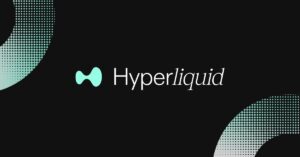Unlocking Institutional DeFi: Tech Innovations Spark a Summer Revolution

Institutional DeFi Summer: HTX Research Unveils Insights on Credit Systems and Technological Advancements
HTX Research Highlights the Rise of Institutional DeFi
On June 26, 2025, HTX Research, the analytical division of the prominent cryptocurrency exchange HTX, released a comprehensive report titled “The Technological Evolution and the Foundation of the Credit System Behind ‘Institutional DeFi Summer’.” This document meticulously examines the technological progress in institutional finance and credit frameworks, focusing on the policy-driven momentum that is facilitating the growth of institutional DeFi as regulatory conditions in the U.S. become more favorable for digital assets. This emerging trend is not aimed at retail investors but is specifically tailored for institutional players. HTX is intensifying its commitment to the DeFi sector, having recently listed SPK (Spark), a key component of MakerDAO’s Endgame roadmap, while continuing to provide users with access to lucrative DeFi opportunities that connect institutional capital with on-chain liquidity.
HTX’s Strategic Position in the DeFi Landscape
As institutional interest in DeFi accelerates, HTX is enhancing its expansion efforts in this sector. Recent trading statistics reveal a resurgence of interest in DeFi assets. In the past week, Uniswap (UNI), an Ethereum-based decentralized exchange, saw a remarkable increase of 31%, while Raydium (RAY), a Solana-based DEX, surged by 39%. Lending platforms such as AAVE and Synthetix (SNX) experienced gains of 13%, and Chainlink (LINK), a leading oracle, added 10% to its value. Additionally, the real-world asset token ONDO has garnered significant attention, fueled by capital influxes from the U.S. HTX has also strategically ventured into emerging ecosystems, with Sui-based tokens like BLUE and CUTES showing strong performance post-listing, highlighting HTX’s ability to spot promising assets in developing DeFi environments.
Regulatory Changes Foster Institutional Engagement
HTX Research identifies two pivotal developments in 2025 that have sparked institutional interest in DeFi: the repeal of SAB 121 and the progress of the GENIUS Act. These legislative changes create a robust framework for traditional financial institutions to legally issue stablecoins and engage in on-chain financial activities.
In a significant move, Wall Street investment bank Cantor Fitzgerald has partnered with the DeFi lending platform Maple Finance to execute the first on-chain Bitcoin loan transaction. The bank deposited its acquired Bitcoin into Maple, earning an annualized yield of 4–6%. This partnership is particularly noteworthy as Cantor Fitzgerald is led by U.S. Commerce Secretary Howard Lutnick, signaling a growing confidence in the future of DeFi within mainstream finance.
The Rise of On-Chain Credit in Institutional DeFi
Institutional-grade applications within DeFi are rapidly evolving. Maple Finance’s total value locked (TVL) has exceeded $2 billion and continues to grow. Furthermore, MakerDAO’s Spark protocol has allocated $50 million directly to Maple, creating on-chain lending products that yield a stable return of 10-17%. This development establishes a multi-step credit loop that mirrors the complexity and yield sophistication found in traditional finance. HTX Research highlights several technical and structural advancements that are transforming DeFi into a robust financial layer suitable for institutional use:
-
Sybil Resistance and On-Chain Trust: Initiatives like 3Jane are developing a decentralized credit rating system that combines zero-knowledge proofs and FICO scores to offer non-collateralized USDC loans to small and medium-sized enterprises.
-
Structured Debt Instruments (CLOs): Various DeFi protocols, including Maple, are working on on-chain collateralized loan obligations (CLOs), which issue different classes of debt securities—senior and junior—to cater to diverse investor risk appetites while enhancing liquidity and transparency through smart contracts.
-
Credit Default Swaps (CDS): Aave’s Umbrella module and Opium’s CDS products are designed to mitigate counterparty default risk in DeFi through automated execution and tradable agreements.
-
Delegated Lending and Restaking Insurance: Maple’s innovative “pool delegate + sub-leading” model enhances the coverage and layering of lending services, while SyrupUSDC improves capital efficiency through a unique “restaking + insurance pool” design.
The Future of DeFi: Innovations in AMMs and Stablecoins
As institutional players increasingly engage with DeFi, the underlying infrastructure must adapt. While platforms like Uniswap V3 and Curve dominate the market, they often encounter challenges in multi-asset environments. To tackle these issues, Paradigm has proposed the Orbital AMM, which utilizes spherical and toroidal invariants in high-dimensional space to facilitate single-pool, multi-asset trading, thereby significantly reducing slippage and maximizing capital efficiency.
As the landscape prepares for an institutional DeFi summer, HTX remains dedicated to expanding its presence in the DeFi sector, leveraging its innovative insights and comprehensive product offerings to empower users to capitalize on opportunities in the evolving on-chain finance arena.
About HTX Research
HTX Research serves as the analytical arm of HTX Group, focusing on conducting thorough analyses, producing detailed reports, and providing expert evaluations across various topics, including cryptocurrency, blockchain technology, and emerging market trends. With a commitment to delivering data-driven insights and strategic foresight, HTX Research plays a crucial role in shaping industry perspectives and facilitating informed decision-making within the digital asset landscape. Through rigorous research methodologies and advanced analytics, HTX Research remains at the forefront of innovation, driving thought leadership and enhancing the understanding of dynamic market trends.







